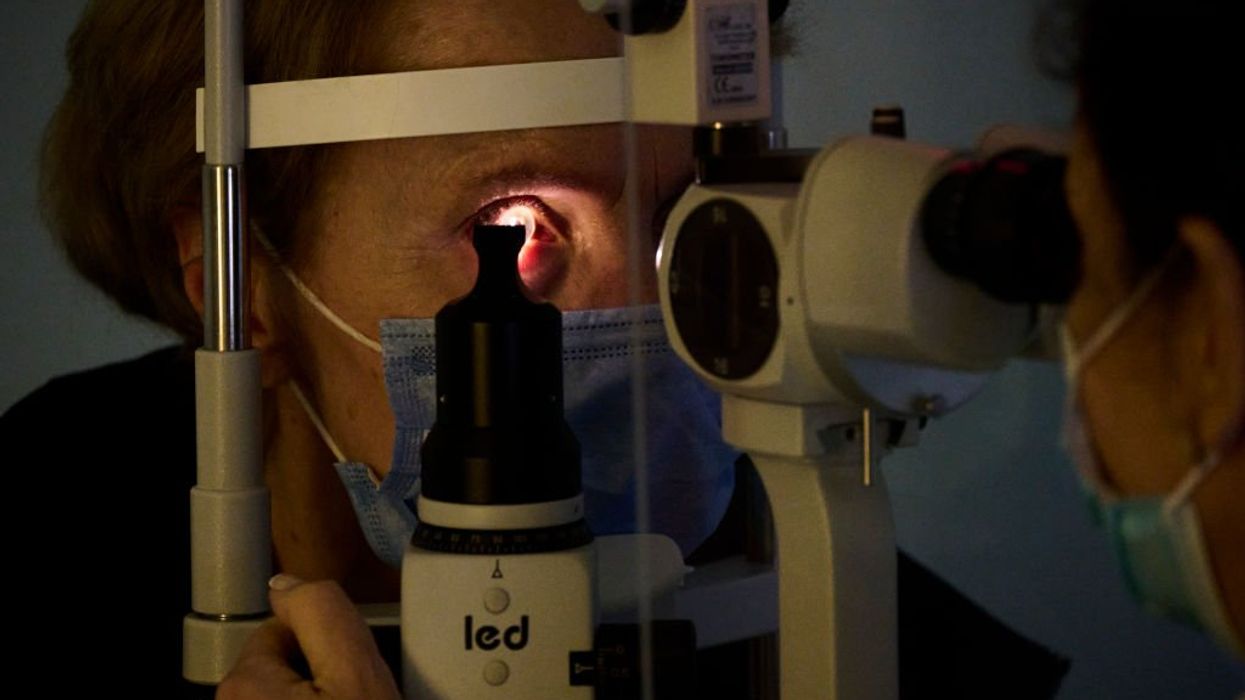
Photo by Horacio Villalobos#Corbis/Getty Images

A shocking new study published in the esteemed British scientific journal "Nature" last week might prove difficult for some to read, particularly those who received the COVID-19 vaccines.
Taiwanese scientists at the Chung Shan Medical University Hospital found there is "a strong correlation between vaccination with a mRNA vaccine and retinal vascular occlusion."
According to the Cleveland Clinic, retinal vascular occlusion is a form of blood clot that affects the eye: "When a retinal vein is blocked, it cannot drain blood from the retina. This leads to hemorrhages (bleeding) and leakage of fluid from blocked blood vessels."
If, for instance, the RVO prompts blood and fluid to leak into the central area of the retina, called the macula, a macular edema may result and cause blurring or loss of vision. Alternatively, RVO can cause the development of abnormal blood vessels that leak into the vitreous, clouding vision and possibly causing the retina to detach from the back of the eye.
RVO can lead to various complications, many of which could lead to irreversible partial or total blindness.
Using the TriNetX network, one of the largest health care and life sciences data sets in the world, the scientists matched 739,066 vaccinated individuals to an unvaccinated cohort at a ratio of 1:1.
The average age of both groups was roughly the same, and there "were no differences in any of the variables between the two cohorts," particularly in terms of age, sex, race, comorbidities, medications, and previous hospitalization.
The researchers found that "individuals with COVID-19 vaccination had a higher risk of all forms of retinal vascular occlusion in 2 years after vaccination" — "2.19 times higher than that in the unvaccinated cohort."
Furthermore, the "cumulative incidence of retinal vascular occlusion was significantly higher in the vaccinated cohort compared to the unvaccinated cohort, 2 years and 12 weeks after vaccination."
The risk of RVO was reportedly highest in the first few weeks after vaccination.
All COVID-19 vaccines were linked to this life-changing side effect.
While a concern, the vaccine-induced blindness is not a widespread issue, suggested the study.
The researchers noted that as of August 2022, 223.04 million people had completed a primary series of COVID-19 vaccines in the United States, yet the "number of reported ophthalmic complications has remained low."
The study appears to both put to bed the notion that blindness following COVID-19 vaccination is coincidental and confirm earlier suspicions.
A scientific review undertaken in 2021 and published in the journal Vaccines (Basel) concluded that while there was a concerning trend of "ocular manifestations after COVID-19 vaccination," the benefits of vaccination "outweigh the risks."
In light of their findings, the researchers suggested that ophthalmologists should henceforth "consider the likelihood of retinal vascular occlusion in vulnerable patients following the administration of COVID-19 vaccines."
Like Blaze News? Bypass the censors, sign up for our newsletters, and get stories like this direct to your inbox. Sign up here!